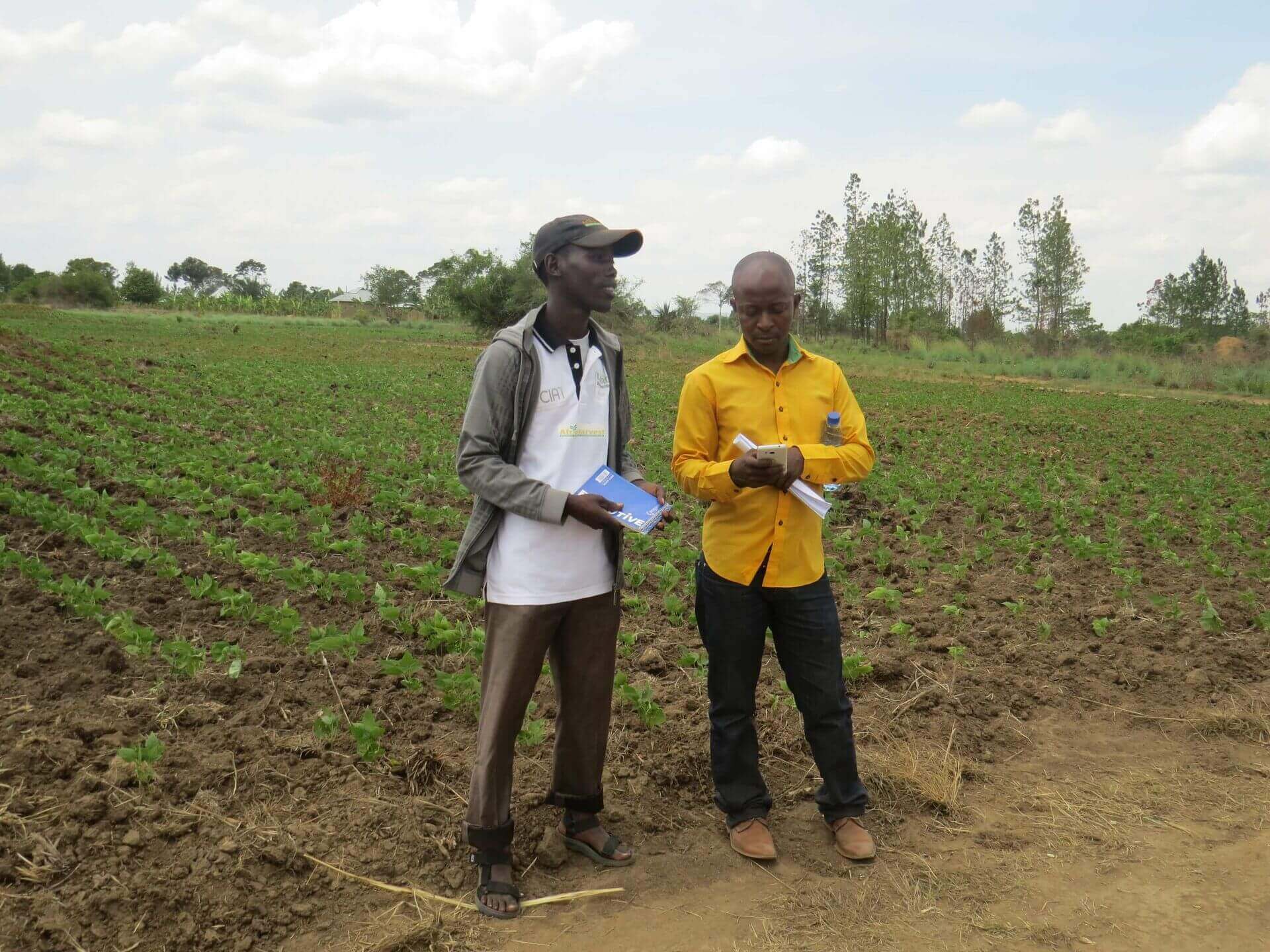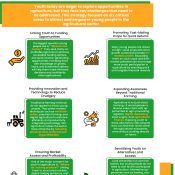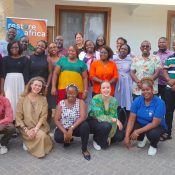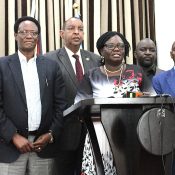
Building Youth-Based Agripreneurs in Seed Multiplication in Tanzania
The per capita consumption of common bean in Africa is the highest globally, as it is the second most important source of dietary protein. It meets as much as 36% of the dietary protein needs in some parts of the continent. It is estimated that over 75% of rural households in Tanzania depend on beans for daily subsistence, consuming 19.3 kg of bean per capita. In East Africa, the annual per capita consumption stands at 60 kg in Burundi, 27 kg in Uganda, and 14 kg in Kenya.
However, the average bean yield per annum in African countries remains lower than the world average of 0.86 MT/Ha (FAOSTAT) due to reliance by majority of farmers in East Africa on saved seed to establish the next crop. Saved seeds have many disadvantages including lack of uniformity in terms of variety, quality, colour, low germination ability, and likelihood of pests and disease infestation. These coupled with decreasing soil fertility and inadequate use of inputs such as fertilizers and pesticides, conspire to reduce productivity to the current 0.4 MT/ha.
Responding to these challenges requires partnerships with multiple stakeholders including farmers, governments, donors, non-profit organisations and private sector actors. Africa Harvest implemented the IFAD-funded Integrated Farming Systems for Smallholder Farmers in East Africa (INFAS) project in Tanzania with these challenges in mind, and after having witnessed the country’s dwindling fortunes, as production per capita halved despite the country remaining as one of the world’s major bean producers. The project sought to develop a private-sector-based seed system by expanding bean seed multiplication sites to meet the huge demand for seed.
Naturally, Africa Harvest employed the successful quality declared seed (QDS) system for rapid multiplication and distribution approaches to improve access to quality bean seed in the rural areas. With this approach, farmers and farmer groups with a high potential of succeeding were selected for training on seed multiplication. Among those selected to receive support on new farming methods to improve productivity was the Byamutemba Group, a 35-member group in the Kagera Region of Tanzania. Soon after, the group became involved in the production of the Uyole Njano bean variety in 2015 following engagements with the extension department of Missenyi District Council.
Working with Agricultural Research Institute (ARI) Maruku and Tanzania Official Seed Certification Institute (TOSCI), Africa Harvest trained the group on bean seed production, and marketing and certification procedures at the Institute’s Centre in Bukoba. The group’s secretary Tarasisi Pastori, was the first member to attend the training in November 2015, after which extension officers were engaged to train the entire group with the establishment of a one-acre bean demonstration plot on one of its members’ farms. It is at this demonstration plot that the group members received their training on bean agronomy, bean seed multiplication and composting.
As a result of the trainings, the group has successfully produced compost, which they have been using in their farms to improve soil fertility. Having acquired good agronomic expertise, they have successfully established beans, banana and cassava in their farms, increased productivity per unit area and improved their household nutritional status. There have also been numerous positive externalities, as the group educates the surrounding community and individuals by sharing their experiences and lessons learnt.
Further, the group purchased a field to construct a storage facility to preserve bean seed and other agricultural products, opened a bank account and leased a three-acre piece of land for bean seed production. Indeed, not only has the INFAS project given the group the new impetus for growth needed to expand their activities but also developed the capacity of individual members to positively contribute to and benefit from increased production.
Through the INFAS project, 30-year old Pastori has become a successful bean seed multiplier. Pastori, a mechanic by training, has come a long way in his bean seed production journey. After returning home to help his parents with farming, Pastori had no experience in bean seed production. However, after receiving training at the beginning of the year from Africa Harvest and its partners on bean seed production, the father of four’s mind was made up: he would venture into bean seed multiplication.
A Multiplier’s Journey
Pastori’s journey started with a TZS 90,000 (US$ 40) investment and 32 kg of foundation seed, which he used to establish a one-acre seed production unit multiplying the Uyole Njano bean variety. Despite poor rains as the drought set in earlier than expected, Pastori managed to harvest 300 kg of seed. However, after grading it, he was left with 250 kg of clean seed, as 50 kg of seed was not so good and was therefore kept aside for consumption by his family. Of the good seed, he kept aside 100 kg for planting in the next season and sold 150 kg to other farmers. He sold the first batch of 90 kg during the Nane Nane shows and 60 kg to ARI Maruku, who required seed for farmers in other regions.
From his initial investment of TZS 90,000, Pastori was able to treble his returns, earning a gross income of TZS 300,000, which translated to approximately TZS 210,000 in profit. Having realised the profitability of bean seed production from his significant returns, Pastori has now increased his acreage under seed production by 3.5 acres, 2 of which he owns while 1.5 is leased. For his success, the Missenyi District Council awarded him a certificate for best bean seed production. As a full-time bean seed multiplier, Pastori hopes to further increase the acreage under seed production by leasing more land in future.
Similarly, his group’s outlook is very good. The group has approached the local government in Byamutemba for a piece of land upon which they hope to construct a bean seed storage facility, and credit institutions in Missenyi District Council for low-interest loans. With funding, the group hopes to purchase water pumps and drip irrigation kits; acquire a tractor for land preparation and for leasing to other farmers at a fee. Their plan is to continue working with ARI Maruku and the local extension services department to improve their agricultural productivity.



